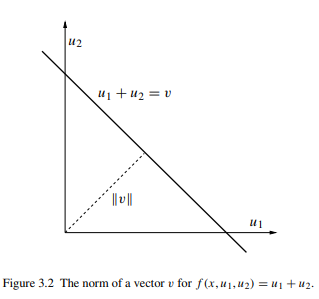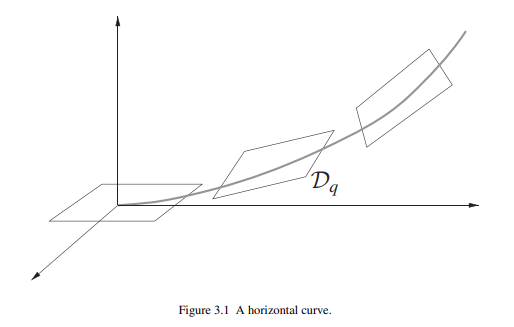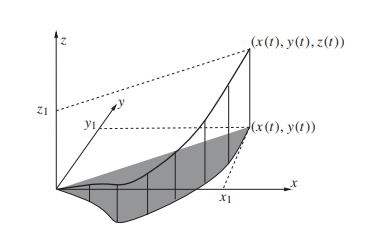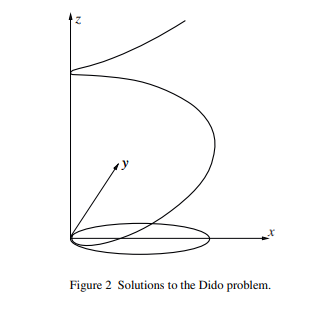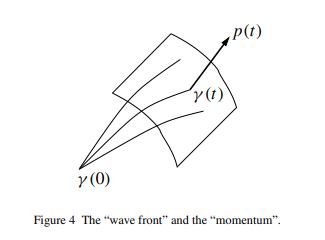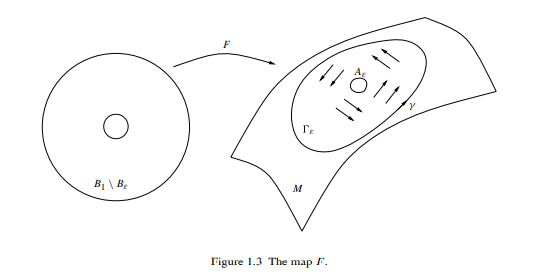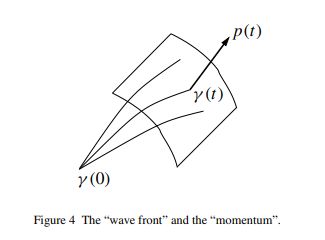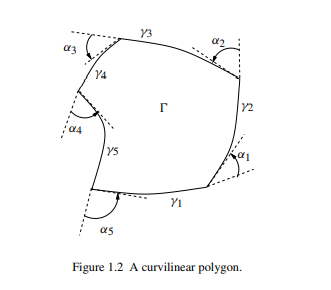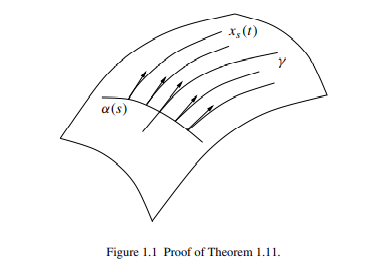数学代写|黎曼几何代写Riemannian geometry代考|MATH3342
如果你也在 怎样代写黎曼几何Riemannian geometry这个学科遇到相关的难题,请随时右上角联系我们的24/7代写客服。
黎曼几何是研究黎曼流形的微分几何学分支,黎曼流形是具有黎曼公制的光滑流形,即在每一点的切线空间上有一个内积,从一点到另一点平滑变化。
statistics-lab™ 为您的留学生涯保驾护航 在代写黎曼几何Riemannian geometry方面已经树立了自己的口碑, 保证靠谱, 高质且原创的统计Statistics代写服务。我们的专家在代写黎曼几何Riemannian geometry代写方面经验极为丰富,各种代写黎曼几何Riemannian geometry相关的作业也就用不着说。
我们提供的黎曼几何Riemannian geometry及其相关学科的代写,服务范围广, 其中包括但不限于:
- Statistical Inference 统计推断
- Statistical Computing 统计计算
- Advanced Probability Theory 高等概率论
- Advanced Mathematical Statistics 高等数理统计学
- (Generalized) Linear Models 广义线性模型
- Statistical Machine Learning 统计机器学习
- Longitudinal Data Analysis 纵向数据分析
- Foundations of Data Science 数据科学基础

数学代写|黎曼几何代写Riemannian geometry代考|Analysis of Lorentzian Distance Functions
For comparison, and before going further into the Riemannian setting, we briefly present the corresponding Hessian analysis of the distance function from a point in a Lorentzian manifold and its restriction to a spacelike hypersurface. The results can be found in [AHP], where the corresponding Hessian analysis was also carried out, i.e., the analysis of the Lorentzian distance from an achronal spacelike hypersurface in the style of Proposition 3.9. Recall that in Section 3 we also considered
the analysis of the distance from a totally geodesic hypersurface $P$ in the ambient Riemannian manifold $N$.
Let $\left(N^{n+1}, g\right)$ denote an $(n+1)$-dimensional spacetime, that is, a timeoriented Lorentzian manifold of dimension $n+1 \geq 2$. The metric tensor $g$ has index 1 in this case, and, as we did in the Riemannian context, we shall denote it alternatively as $g=\langle,$,$rangle (see, e.g., [O’N] as a standard reference for this section).$
Given $p, q$ two points in $N$, one says that $q$ is in the chronological future of $p$, written $p \ll q$, if there exists a future-directed timelike curve from $p$ to $q$. Similarly, $q$ is in the causal future of $p$, written $p<q$, if there exists a future-directed causal (i.e., nonspacelike) curve from $p$ to $q$.
Then the chronological future $I^{+}(p)$ of a point $p \in N$ is defined as
$$
I^{+}(p)={q \in N: p \ll q} .
$$
The Lorentzian distance function $d: N \times N \rightarrow[0,+\infty]$ for an arbitrary spacetime may fail to be continuous in general, and may also fail to be finite-valued. But there are geometric restrictions that guarantee a good behavior of $d$. For example, globally hyperbolic spacetimes turn out to be the natural class of spacetimes for which the Lorentzian distance function is finite-valued and continuous.
Given a point $p \in N$, one can define the Lorentzian distance function $d_{p}$ :
$M \rightarrow[0,+\infty]$ with respect to $p$ by
$$
d_{p}(q)=d(p, q) .
$$
In order to guarantee the smoothness of $d_{p}$, we need to restrict this function on certain special subsets of $N$. Let $\left.T_{-1} N\right|{p}$ be the following set $$ \left.T{-1} N\right|{p}=\left{v \in T{p} N: v \text { is a future-directed timelike unit vector }\right} .
$$
Define the function $s_{p}:\left.T_{-1} N\right|{p} \rightarrow[0,+\infty]$ by $$ s{p}(v)=\sup \left{t \geq 0: d_{p}\left(\gamma_{v}(t)\right)=t\right},
$$
where $\gamma_{v}:[0, a) \rightarrow N$ is the future inextendible geodesic starting at $p$ with initial velocity $v$. Then we define
$$
\tilde{\mathcal{I}}^{+}(p)=\left{t v: \text { for all }\left.v \in T_{-1} N\right|{p} \text { and } 0{p}(v)\right}
$$
and consider the subset $\mathcal{I}^{+}(p) \subset N$ given by
$$
\mathcal{I}^{+}(p)=\exp {p}\left(\operatorname{int}\left(\tilde{\mathcal{I}}^{+}(p)\right)\right) \subset I^{+}(p) . $$ Observe that the exponential map $$ \exp {p}: \operatorname{int}\left(\tilde{\mathcal{I}}^{+}(p)\right) \rightarrow \mathcal{I}^{+}(p)
$$
is a diffeomorphism and $\mathcal{I}^{+}(p)$ is an open subset (possible empty).
Remark 4.1. When $b \geq 0$, the Lorentzian space form of constant sectional curvature $b$, which we denote as $N_{b}^{n+1}$, is globally hyperbolic and geodesically complete, and every future directed timelike unit geodesic $\gamma_{b}$ in $N_{b}^{n+1}$ realizes the Lorentzian distance between its points. In particular, if $b \geq 0$ then $\mathcal{I}^{+}(p)=I^{+}(p)$ for every point $p \in N_{b}^{n+1}$ (see [EGK, Remark 3.2]).
数学代写|黎曼几何代写Riemannian geometry代考|Concerning the Riemannian Setting and Notation
Returning now to the Riemannian case: Although we indeed do have the possibility of considering 4 basically different settings determined by the choice of $p$ or $V$ as the ‘base’ of our normal domain and the choice of $K_{N} \leq b$ or $K_{N} \geq b$ as the curvature assumption for the ambient space $N$, we will, however, mainly consider the ‘first’ of these. Specifically we will (unless otherwise explicitly stated) apply the following assumptions and denotations:
Definition 5.1. A standard situation encompasses the following:
(1) $P^{m}$ denotes an $m$-dimensional complete minimally immersed submanifold of the Riemannian manifold $N^{n}$. We always assume that $P$ has dimension $m \geq 2 .$
(2) The sectional curvatures of $N$ are assumed to satisfy $K_{N} \leq b, b \in \mathbb{R}$, cf. Proposition $3.10$, equation (3.13).
(3) The intersection of $P$ with a regular ball $B_{R}(p)$ centered at $p \in P$ (cf. Definition 3.4) is denoted by
$$
D_{R}=D_{R}(p)=P^{m} \cap B_{R}(p)
$$
and this is called a minimal extrinsic $R$-ball of $P$ in $N$, see the Figures 3-7 of extrinsic balls, which are cut out from some of the well-known minimal surfaces in $\mathbb{R}^{3}$.
(4) The totally geodesic $m$-dimensional regular $R$-ball centered at $\tilde{p}$ in $\mathbb{K}^{n}(b)$ is denoted by
$$
B_{R}^{b, m}=B_{R}^{b, m}(\tilde{p})
$$
whose boundary is the $(m-1)$-dimensional sphere
$$
\partial B_{R}^{b, m}=S_{R}^{b, m-1}
$$
(5) For any given smooth function $F$ of one real variable we denote
$$
W_{F}(r)=F^{\prime \prime}(r)-F^{\prime}(r) h_{b}(r) \text { for } 0 \leq r \leq R
$$
We may now collect the basic inequalities from our previous analysis as follows.
数学代写|黎曼几何代写Riemannian geometry代考|Green’s Formulae and the Co-area Formula
Now we recall the coarea formula. We follow the lines of [Sa] Chapter II, Section 5. Let $(M, g)$ denote a Riemannian manifold and $\Omega$ a precompact domain in $M$. Let $\psi: \Omega \rightarrow \mathbb{R}$ be a smooth function such that $\psi(\Omega)=[a, b]$ with $a<b$. Denote by $\Omega_{0}$ the set of critical points of $\psi$. By Sard’s theorem, the set of critical values $S_{\psi}=\psi\left(\Omega_{0}\right)$ has null measure, and the set of regular values $R_{\psi}=[a, b]-S_{\psi}$ is open. In particular, for any $t \in R_{\psi}=[a, b]-S_{\psi}$, the set $\Gamma(t):=\psi^{-1}(t)$ is a smooth embedded hypersurface in $\Omega$ with $\partial \Gamma(t)=\emptyset$. Since $\Gamma(t) \subseteq \Omega-\Omega_{0}$ then $\nabla \psi$ does not vanish along $\Gamma(t)$; indeed, a unit normal along $\Gamma(t)$ is given by $\nabla \psi /|\nabla \psi|$.
Now we let
$$
\begin{aligned}
&A(t)=\operatorname{Vol}(\Gamma(t)) \
&\Omega(t)={x \in \bar{\Omega} \mid \psi(x)<t} \
&V(t)=\operatorname{Vol}(\Omega(t))
\end{aligned}
$$
Theorem 6.1.
i) For every integrable function $u$ on $\bar{\Omega}$ :
$$
\int_{\Omega} u \cdot|\nabla \psi| d V=\int_{a}^{b}\left(\int_{\Gamma(t)} u d A_{t}\right) d t,
$$
where $d A_{t}$ is the Riemannian volume element defined from the induced metric $g_{t}$ on $\Gamma(t)$ from $g$.
ii) The function $V(t)$ is a smooth function on the regular values of $\psi$ given by:
$$
V(t)=\operatorname{Vol}\left(\Omega_{0} \cap \Omega(t)\right)+\int_{a}^{t}\left(\int_{\Gamma(t)}|\nabla \psi|^{-1} d A_{t}\right)
$$
and its derivative is
$$
\frac{d}{d t} V(t)=\int_{\Gamma(t)}|\nabla \psi|^{-1} d A_{t}
$$

黎曼几何代考
数学代写|黎曼几何代写Riemannian geometry代考|Analysis of Lorentzian Distance Functions
为了比较,在进一步研究黎曼设置之前,我们简要介绍了洛伦兹流形中一点的距离函数的相应 Hessian 分析及其对类空间超曲面的限制。结果可以在[AHP] 中找到,其中也进行了相应的Hessian 分析,即以命题3.9 的风格分析洛伦兹距离与非时间类空间超曲面的距离。回想一下,在第 3 节中,我们还考虑了
与完全测地线超曲面的距离分析磷在环境黎曼流形中ñ.
让(ñn+1,G)表示一个(n+1)维时空,即维的时间导向洛伦兹流形n+1≥2. 度量张量G在这种情况下具有索引 1,并且正如我们在黎曼上下文中所做的那样,我们将其表示为G=⟨,,r一个nGl和(s和和,和.G.,[○′ñ]一个s一个s吨一个nd一个rdr和F和r和nC和F○r吨H一世ss和C吨一世○n).
给定p,q两点在ñ,有人说q是在时间顺序的未来p, 写p≪q, 如果存在一条未来导向的类时曲线p至q. 相似地,q是在因果未来p, 写p<q,如果存在一个未来导向的因果(即非空间)曲线p至q.
然后按时间顺序的未来我+(p)一点的p∈ñ定义为
我+(p)=q∈ñ:p≪q.
洛伦兹距离函数d:ñ×ñ→[0,+∞]因为一个任意的时空通常可能不是连续的,也可能不是有限值的。但是有几何限制可以保证良好的行为d. 例如,全局双曲时空被证明是洛伦兹距离函数是有限值且连续的自然类时空。
给定一个点p∈ñ,可以定义洛伦兹距离函数dp :
米→[0,+∞]关于p经过
dp(q)=d(p,q).
为了保证流畅度dp,我们需要将此函数限制在某些特殊子集上ñ. 让吨−1ñ|p是以下集合
\left.T{-1} N\right|{p}=\left{v \in T{p} N: v \text { 是一个面向未来的类时单位向量 }\right} 。\left.T{-1} N\right|{p}=\left{v \in T{p} N: v \text { 是一个面向未来的类时单位向量 }\right} 。
定义函数sp:吨−1ñ|p→[0,+∞]经过
s{p}(v)=\sup \left{t \geq 0: d_{p}\left(\gamma_{v}(t)\right)=t\right},s{p}(v)=\sup \left{t \geq 0: d_{p}\left(\gamma_{v}(t)\right)=t\right},
在哪里C在:[0,一个)→ñ是未来不可扩展的测地线,开始于p以初速度在. 然后我们定义
\tilde{\mathcal{I}}^{+}(p)=\left{t v: \text { for all }\left.v \in T_{-1} N\right|{p} \text { 和} 0{p}(v)\right}\tilde{\mathcal{I}}^{+}(p)=\left{t v: \text { for all }\left.v \in T_{-1} N\right|{p} \text { 和} 0{p}(v)\right}
并考虑子集我+(p)⊂ñ由
我+(p)=经验p(整数(我~+(p)))⊂我+(p).观察指数图
经验p:整数(我~+(p))→我+(p)
是微分同胚和我+(p)是一个开放子集(可能为空)。
备注 4.1。什么时候b≥0, 等截面曲率的洛伦兹空间形式b, 我们记为ñbn+1, 是全局双曲线和测地线完备的,并且每一个未来有向类时单位测地线Cb在ñbn+1实现其点之间的洛伦兹距离。特别是,如果b≥0然后我+(p)=我+(p)对于每一点p∈ñbn+1(参见 [EGK,备注 3.2])。
数学代写|黎曼几何代写Riemannian geometry代考|Concerning the Riemannian Setting and Notation
现在回到黎曼案例:虽然我们确实有可能考虑 4 个基本不同的设置,这些设置由p或者在作为我们正常域的“基础”和选择ķñ≤b或者ķñ≥b作为环境空间的曲率假设ñ,但是,我们将主要考虑其中的“第一个”。具体而言,我们将(除非另有明确说明)应用以下假设和表示:
定义 5.1。标准情况包括以下内容:
(1)磷米表示一个米黎曼流形的一维完全最小浸没子流形ñn. 我们总是假设磷有维度米≥2.
(2) 截面曲率ñ假设满足ķñ≤b,b∈R,参见。主张3.10,等式(3.13)。
(3) 交集磷用普通球乙R(p)以p∈磷(参见定义 3.4)表示为
DR=DR(p)=磷米∩乙R(p)
这被称为最小外在R- 球磷在ñ,请参见外部球的图 3-7,它们是从R3.
(4) 完全测地线米维规则R- 球为中心p~在ķn(b)表示为
乙Rb,米=乙Rb,米(p~)
其边界是(米−1)维球
∂乙Rb,米=小号Rb,米−1
(5) 对于任何给定的平滑函数F我们表示的一个实变量
在F(r)=F′′(r)−F′(r)Hb(r) 为了 0≤r≤R
我们现在可以从之前的分析中收集如下的基本不等式。
数学代写|黎曼几何代写Riemannian geometry代考|Green’s Formulae and the Co-area Formula
现在我们回忆一下 coarea 公式。我们遵循 [Sa] 第二章第 5 节的思路。让(米,G)表示黎曼流形和Ω预压缩域米. 让ψ:Ω→R是一个光滑的函数,使得ψ(Ω)=[一个,b]和一个<b. 表示为Ω0的一组临界点ψ. 根据 Sard 定理,临界值的集合小号ψ=ψ(Ω0)具有空度量,以及一组常规值Rψ=[一个,b]−小号ψ开了。特别是,对于任何吨∈Rψ=[一个,b]−小号ψ, 集合Γ(吨):=ψ−1(吨)是一个光滑的嵌入超曲面Ω和∂Γ(吨)=∅. 自从Γ(吨)⊆Ω−Ω0然后∇ψ不会消失Γ(吨); 确实,一个单位正常Γ(吨)是(谁)给的∇ψ/|∇ψ|.
现在我们让
一个(吨)=卷(Γ(吨)) Ω(吨)=X∈Ω¯∣ψ(X)<吨 在(吨)=卷(Ω(吨))
定理 6.1。
i) 对于每个可积函数在上Ω¯ :
∫Ω在⋅|∇ψ|d在=∫一个b(∫Γ(吨)在d一个吨)d吨,
在哪里d一个吨是从诱导度量定义的黎曼体积元素G吨上Γ(吨)从G.
ii) 功能在(吨)是一个关于正则值的平滑函数ψ给出:
在(吨)=卷(Ω0∩Ω(吨))+∫一个吨(∫Γ(吨)|∇ψ|−1d一个吨)
它的导数是
dd吨在(吨)=∫Γ(吨)|∇ψ|−1d一个吨
统计代写请认准statistics-lab™. statistics-lab™为您的留学生涯保驾护航。
金融工程代写
金融工程是使用数学技术来解决金融问题。金融工程使用计算机科学、统计学、经济学和应用数学领域的工具和知识来解决当前的金融问题,以及设计新的和创新的金融产品。
非参数统计代写
非参数统计指的是一种统计方法,其中不假设数据来自于由少数参数决定的规定模型;这种模型的例子包括正态分布模型和线性回归模型。
广义线性模型代考
广义线性模型(GLM)归属统计学领域,是一种应用灵活的线性回归模型。该模型允许因变量的偏差分布有除了正态分布之外的其它分布。
术语 广义线性模型(GLM)通常是指给定连续和/或分类预测因素的连续响应变量的常规线性回归模型。它包括多元线性回归,以及方差分析和方差分析(仅含固定效应)。
有限元方法代写
有限元方法(FEM)是一种流行的方法,用于数值解决工程和数学建模中出现的微分方程。典型的问题领域包括结构分析、传热、流体流动、质量运输和电磁势等传统领域。
有限元是一种通用的数值方法,用于解决两个或三个空间变量的偏微分方程(即一些边界值问题)。为了解决一个问题,有限元将一个大系统细分为更小、更简单的部分,称为有限元。这是通过在空间维度上的特定空间离散化来实现的,它是通过构建对象的网格来实现的:用于求解的数值域,它有有限数量的点。边界值问题的有限元方法表述最终导致一个代数方程组。该方法在域上对未知函数进行逼近。[1] 然后将模拟这些有限元的简单方程组合成一个更大的方程系统,以模拟整个问题。然后,有限元通过变化微积分使相关的误差函数最小化来逼近一个解决方案。
tatistics-lab作为专业的留学生服务机构,多年来已为美国、英国、加拿大、澳洲等留学热门地的学生提供专业的学术服务,包括但不限于Essay代写,Assignment代写,Dissertation代写,Report代写,小组作业代写,Proposal代写,Paper代写,Presentation代写,计算机作业代写,论文修改和润色,网课代做,exam代考等等。写作范围涵盖高中,本科,研究生等海外留学全阶段,辐射金融,经济学,会计学,审计学,管理学等全球99%专业科目。写作团队既有专业英语母语作者,也有海外名校硕博留学生,每位写作老师都拥有过硬的语言能力,专业的学科背景和学术写作经验。我们承诺100%原创,100%专业,100%准时,100%满意。
随机分析代写
随机微积分是数学的一个分支,对随机过程进行操作。它允许为随机过程的积分定义一个关于随机过程的一致的积分理论。这个领域是由日本数学家伊藤清在第二次世界大战期间创建并开始的。
时间序列分析代写
随机过程,是依赖于参数的一组随机变量的全体,参数通常是时间。 随机变量是随机现象的数量表现,其时间序列是一组按照时间发生先后顺序进行排列的数据点序列。通常一组时间序列的时间间隔为一恒定值(如1秒,5分钟,12小时,7天,1年),因此时间序列可以作为离散时间数据进行分析处理。研究时间序列数据的意义在于现实中,往往需要研究某个事物其随时间发展变化的规律。这就需要通过研究该事物过去发展的历史记录,以得到其自身发展的规律。
回归分析代写
多元回归分析渐进(Multiple Regression Analysis Asymptotics)属于计量经济学领域,主要是一种数学上的统计分析方法,可以分析复杂情况下各影响因素的数学关系,在自然科学、社会和经济学等多个领域内应用广泛。
MATLAB代写
MATLAB 是一种用于技术计算的高性能语言。它将计算、可视化和编程集成在一个易于使用的环境中,其中问题和解决方案以熟悉的数学符号表示。典型用途包括:数学和计算算法开发建模、仿真和原型制作数据分析、探索和可视化科学和工程图形应用程序开发,包括图形用户界面构建MATLAB 是一个交互式系统,其基本数据元素是一个不需要维度的数组。这使您可以解决许多技术计算问题,尤其是那些具有矩阵和向量公式的问题,而只需用 C 或 Fortran 等标量非交互式语言编写程序所需的时间的一小部分。MATLAB 名称代表矩阵实验室。MATLAB 最初的编写目的是提供对由 LINPACK 和 EISPACK 项目开发的矩阵软件的轻松访问,这两个项目共同代表了矩阵计算软件的最新技术。MATLAB 经过多年的发展,得到了许多用户的投入。在大学环境中,它是数学、工程和科学入门和高级课程的标准教学工具。在工业领域,MATLAB 是高效研究、开发和分析的首选工具。MATLAB 具有一系列称为工具箱的特定于应用程序的解决方案。对于大多数 MATLAB 用户来说非常重要,工具箱允许您学习和应用专业技术。工具箱是 MATLAB 函数(M 文件)的综合集合,可扩展 MATLAB 环境以解决特定类别的问题。可用工具箱的领域包括信号处理、控制系统、神经网络、模糊逻辑、小波、仿真等。



